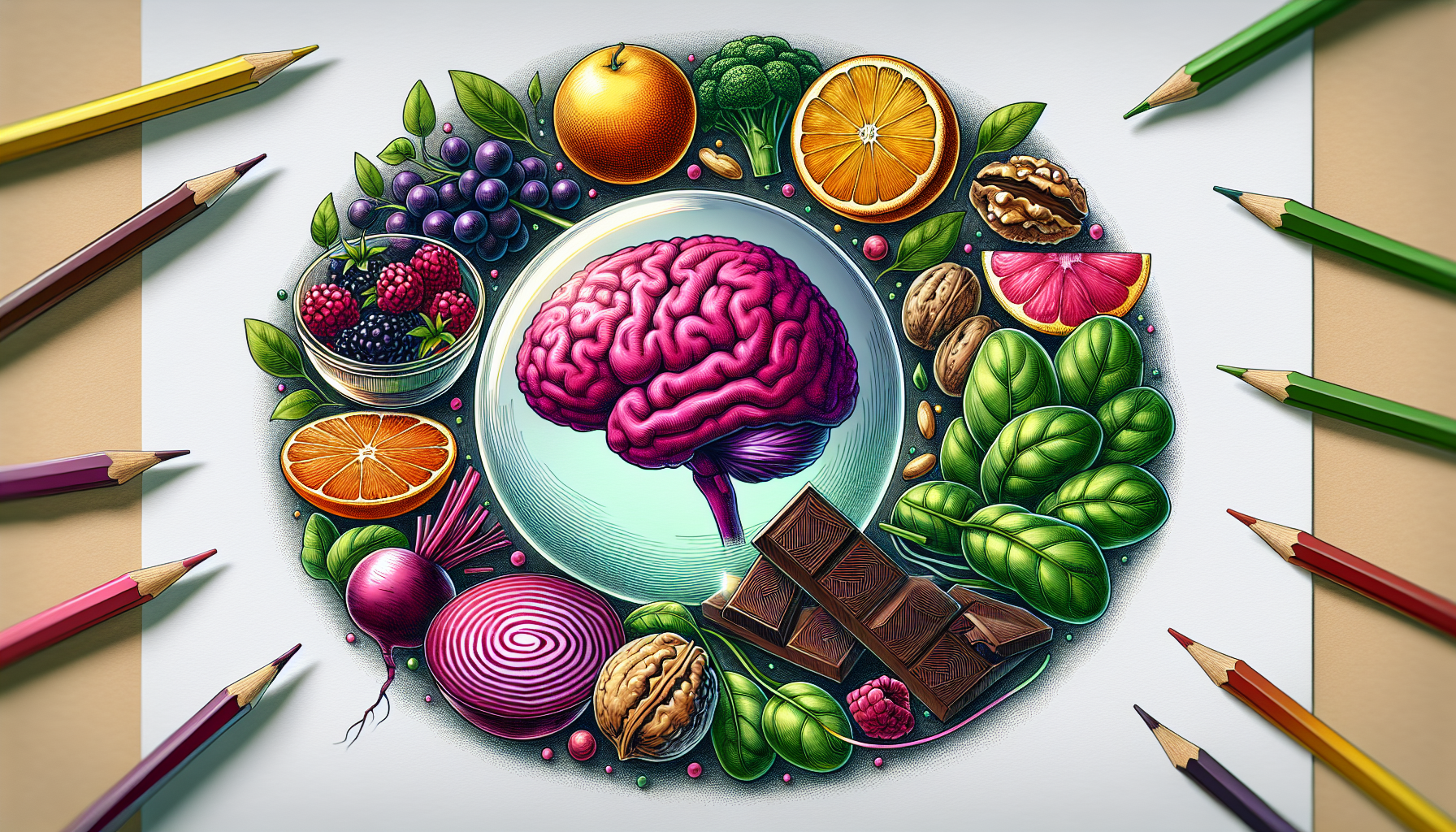Cognitive decline is an unfortunately common concern as we age, with disorders such as Alzheimer’s and other forms of dementia affecting millions of people worldwide. However, recent research has begun to shed light on the potential role that antioxidants play in maintaining cognitive function and potentially delaying or even preventing the onset of cognitive decline.
Understanding Antioxidants and Their Importance
Antioxidants are molecules that can prevent or slow damage to cells caused by free radicals, which are unstable atoms that can damage cells, causing illness and aging. These protective compounds are found in a variety of foods, including fruits, vegetables, nuts, and whole grains. The body also produces some antioxidants, known as endogenous antioxidants, while others, known as exogenous, come from the diet.
Free radicals are produced as a byproduct of regular metabolic processes, but they can also result from exposure to environmental factors like pollution and ultraviolet light. An imbalance between free radicals and antioxidants can lead to oxidative stress, which has been associated with various chronic diseases and aging, including the decline in cognitive function.
For more comprehensive information on overall brain health, consider reviewing Avix Health’s detailed exploration of brain health.
Antioxidants and Cognitive Health
The brain is particularly vulnerable to oxidative stress due to its high oxygen consumption and the abundance of polyunsaturated fatty acids in neuronal cell membranes. These factors make the brain a prime target for free radical attack, which can lead to cell damage and death, contributing to cognitive decline.
Antioxidants can neutralize free radicals, preventing them from causing harm. Vitamins such as vitamin E, vitamin C, and beta-carotene are well-known for their antioxidant properties. Minerals like selenium and manganese also play a role in the body’s endogenous antioxidant defense system.
Dietary Sources of Antioxidants
To harness the cognitive benefits of antioxidants, incorporating a diet rich in these nutrients is essential. Some of the best dietary sources include:
- Berries (blueberries, strawberries, raspberries)
- Nuts and seeds (walnuts, sunflower seeds)
- Green leafy vegetables (spinach, kale)
- Fruits (oranges, apples, grapes)
For those interested in the effects of dietary choices on cognitive function, reading about the impacts of nutrient deficiencies on neurological function can be enlightening.
Research on Antioxidants and Cognitive Decline
Numerous studies have investigated the connection between antioxidant intake and cognitive health. For instance, a study published in the "Journal of Alzheimer’s Disease" found that a higher intake of foods rich in antioxidants was associated with a decreased risk of developing Alzheimer’s.
Another study, focusing on older adults, reported that those with higher blood levels of vitamin E and lycopene (an antioxidant found in tomatoes) had better cognitive function. Such findings support the idea that a diet rich in antioxidants may be protective against cognitive decline.
For a deeper understanding of the protective effects of specific compounds, an exploration of the neuroprotective effects of green tea is recommended.
Antioxidant Supplements: Beneficial or Not?
While food sources of antioxidants are beneficial, the role of antioxidant supplements in preventing cognitive decline is more controversial. Some studies suggest that antioxidant supplements may not provide the same benefits as those derived from a diet rich in antioxidants.
For instance, a large-scale study published in the "Annals of Internal Medicine" concluded that supplementation with vitamin E and selenium did not result in cognitive benefits. Thus, the current consensus in the scientific community leans toward obtaining antioxidants primarily from a well-balanced diet rather than relying on supplements.
When considering supplements, it is important to consult with healthcare professionals and consider evaluating the neurological effects of dietary supplements comprehensively.
Lifestyle Factors and Antioxidant Efficacy
The efficacy of antioxidants in preventing cognitive decline is not only linked to diet but also to an overall healthy lifestyle. Physical activity, for instance, has been shown to boost endogenous antioxidant defenses and improve cognitive function. Similarly, avoiding smoking and limiting alcohol intake can help reduce oxidative stress.
It is also crucial to manage stress levels, as chronic stress can exacerbate oxidative damage. Practices such as mindfulness and yoga can be effective in managing stress and promoting overall well-being.
External High-Quality Resources
For those seeking to expand their knowledge beyond dietary sources, here are some highly specific resources that delve into the role of antioxidants in cognitive health:
- A scholarly article from the "Free Radical Biology and Medicine" journal examines the molecular mechanisms by which antioxidants may protect the brain. (Free Radical Biology and Medicine)
- The National Institutes of Health offers an in-depth look at how antioxidants affect neurodegenerative diseases. (National Institutes of Health)
- A meta-analysis from the "European Journal of Nutrition" provides insights into the relationship between fruit and vegetable intake and cognitive function. (European Journal of Nutrition)
- The Alzheimer’s Society discusses the current understanding of dietary antioxidants and dementia risk. (Alzheimer’s Society)
- The Blue Zones website gives practical advice on incorporating antioxidant-rich foods into your diet for brain health. (Blue Zones)
In conclusion, while antioxidants offer a promising avenue for preserving cognitive function and potentially preventing cognitive decline, it is evident that a holistic approach to lifestyle, including a balanced diet rich in antioxidants, regular physical activity, and stress management, is most beneficial. As research continues to evolve, it is important to stay informed and consult healthcare professionals when considering any significant changes to diet or lifestyle for cognitive health.



